So I was thinking about Will Robinson. Why? you may well ask. I couldn’t sleep the other night, so I pulled up Hulu Plus on the Blu-Ray and looked for something that would soothe me and which I could fall asleep on without worrying about what I missed. Episodes of many TV series of the sixties are so ingrained in my mind that they feel more like memories of old times than fiction. I know my way around the Jupiter Two or the Enterprise as well as I know every inch of the house I grew up in. So I chose to play a black and white episode of Lost in Space to lull myself to sleep.
As I watched out of increasingly heavy eyes, it occurred to me that Will Robinson, the young hero of Lost in Space, is eternally twelve years old. Currently, that makes him the age of my youngest son.
Now I realize that Bill Mumy, the real life actor who played the part, is ten years older than I. I’ve met Bill, his lovely wife, and their very talented daughter. He’s a real guy who’s aging right along with the rest of us. It must be even stranger for him to see himself so young, still cavorting amongst the mysterious caves, jungles and infinite blacknesses (read: empty soundstages) of alien worlds.
But Will is, and always will be, twelve. When I was little, five or six, Will was, in my childish imagination, a big brother with whom I’d never fight, and with whom I could imagine sharing incredible adventures in worlds where kids could be heroes and adults were usually too jaded or too busy to notice the dangers around us and come up with ways to combat them. I strongly identified with this kid. Which, of course, was the point of having a kid on the show. Young viewers would identify with him. He had an ingenious sister, Penny, with whom young girls could identify. (Probably there were boys who identified with Penny and girls who identified with Will, but I digress.)
When I was in high school, I still watched Lost in Space. I kept it a secret, because high school kids were supposed to be sophisticated. We knew it all, we’d seen it all, we were virgins only in our left ears. We didn’t watch silly kids shows. You have no idea what a relief it was to me when my journalism teacher confessed that he, like me, charged home after school to catch Lost in Space reruns.
At that age, I thought it would be cool to have a little brother like Will Robinson: someone brave and incredibly intelligent who would look up to me, and to whom I could give advice. I was one hell of a wise counselor at age fifteen, I assure you. It’s a pity I had no younger siblings to benefit from my sage guidance. The world would be a far happier place if I had.

There weren’t many other kids in the pantheon of heroes of fantasy, science fiction and adventure. The X-Men were young, certainly. The Teen Titans were teens; but they were all older teens, or people in their twenties. They owned cars and had their own apartments or independent living quarters in exotic locations. Even to a high school student, they seemed like older role models, not peers. Most of them didn’t even have definite ages. I rarely thought of them, age-wise, in comparison to myself. (Except for Power Girl, with whom I fell madly in love beginning around age twelve, and remained so until she grew prehensile breasts capable of smashing a man’s head.)
And then I became a college student and an a adult with a job, a married person, a parent… I was too busy to notice the passing years and really think about the fact that I’d aged past many of my childhood heroes. The realization didn’t strike me until Dean Cain, an actor younger than I, was cast as Superman. Superman was younger than me! Impossible! You’d think getting a full time job or having kids or owning a house would be the major rites of passage; no, for me, it was realizing I was older than Superman. That said I must be an adult, even if I didn’t (and still don’t) feel like one. What I hit the other night was a secondary rite of passage – realizing that I’m not only an adult, I’m now old enough to be the father of my imaginary childhood friend. I must be, since my youngest child is his age! (And I understand his classmates have started asking, “Dude, how come your parents are so OLD?”)
It’s interesting, reflecting on how our attitudes change towards fictional characters we love as the decades pass. They stay forever the same, and we change drastically. When we encounter them again, do we recall lost youth? Do we feel younger than them again, or the same age? If you’re only as old as you feel, how is your perceived age affected by those around you, even those fictional characters around you? (If you don’t consider fictional characters part of your daily life, you’re not engaging your brain enough. Go back to START and skip three turns. Read a book. Come back to me when your imagination reboots.)
Or do we not let our perceptions be affected at all by those forever-young characters? Do we instead resent them for still being young, or dismiss them as irrelevant? (Because resentment should be saved for real people, and we’re all grown-up an practical now, after all.) Worse, do we also resent the real young people in our lives for being young while we no longer are? If our fictional friends could somehow see us changing over the years, what would they think of us?
 Resentment of the immortal has been a common theme in fictional works which addressed immortality. In Heinlein’s Methuselah’s Children, the long-lived (though not yet immortal) Howard families, who achieved long life via a eugenics program, are forced to flee earth because short-lived humans hate and envy them. The hatred stemmed, supposedly, from the belief that the Howards had a “secret,” some sort of magic elixir. There was a way that all people could be immortal, and the greedy Howards were just keeping it to themselves. I always wondered if their tormentors really believed this, or if they were more just driven to violence by the fact that the Howards had something they couldn’t possess.
Resentment of the immortal has been a common theme in fictional works which addressed immortality. In Heinlein’s Methuselah’s Children, the long-lived (though not yet immortal) Howard families, who achieved long life via a eugenics program, are forced to flee earth because short-lived humans hate and envy them. The hatred stemmed, supposedly, from the belief that the Howards had a “secret,” some sort of magic elixir. There was a way that all people could be immortal, and the greedy Howards were just keeping it to themselves. I always wondered if their tormentors really believed this, or if they were more just driven to violence by the fact that the Howards had something they couldn’t possess.
The Howards were one of the few cases I’ve encountered where immortality simply came to humans, the fulfillment of an unrealized potential within us. Most immortals in SF and Fantasy have come upon their long lives via some device. Edgar Rice Burroughs’s John Carter shed his physical body early on in his adventures, and his spirit became flesh. So he didn’t need to die. His spiritual brother Tarzan, along with his family, took an elixir to gain immortality, at the end of the novel Tarzan’s Quest. The elixir was hard-won and a closely guarded secret, something in keeping with the expectations of the masses in Methuselah’s Children.
 But Tarzan and John Carter got to be immortal alongside their loved ones. They didn’t ever really have to reflect on what it was like to watch those they cared for age and die while they remained young and perfect. Nor did the comparatively young Lazarus Long in Methuselah’s Children. They were too busy hiding their immortality, running from those who coveted it, or just plain ignoring the short-lived.
But Tarzan and John Carter got to be immortal alongside their loved ones. They didn’t ever really have to reflect on what it was like to watch those they cared for age and die while they remained young and perfect. Nor did the comparatively young Lazarus Long in Methuselah’s Children. They were too busy hiding their immortality, running from those who coveted it, or just plain ignoring the short-lived.
Millennia later, though, Lazarus Long was forced to come to terms with the pain of being nigh-immortal, and we were there to live that pain with him. In “The Tale of the Adopted Daughter,” (from Time Enough for Love) one of the most beautiful and moving stories in all of SF, Lazarus marries his foster child, Dora, upon her coming of age. He stays with her, has children, watches her grow old, and buries her. This happens in the blink of an eye to this man who’s almost a thousand years old at the time of the story, but it happens over the course of, for Dora, a long life. And Dora is the love of Lazarus’s own very long life. A thousand years later, he still isn’t over her. He lives on, he loves others, but she never leaves him. She never for a moment resents the fact that he will outlive him for centuries. Some might suggest that makes her too perfect to be real. I prefer to believe Dora is an example of someone who’s very comfortable with exactly who and what she is.
 Isaac Asimov gave us a glimpse into the long-lifer-loves-short-lifer scenario from a dual perspective in Robots and Empire, a sequel to his robot detective novels The Caves of Steel, The Naked Sun and The Robots of Dawn, and a prequel to his Foundation Trilogy. In it, Gladia Delmarre is a “spacer,” a genetically enhanced, long-lived human who once loved an earthman named Elijah Baley, now centuries dead. Her robot companion, Daneel Olivaw, was once Baley’s partner in investigating crime. Both had stronger emotional ties to the short-lived Baley than to any other human or robot they’d known.
Isaac Asimov gave us a glimpse into the long-lifer-loves-short-lifer scenario from a dual perspective in Robots and Empire, a sequel to his robot detective novels The Caves of Steel, The Naked Sun and The Robots of Dawn, and a prequel to his Foundation Trilogy. In it, Gladia Delmarre is a “spacer,” a genetically enhanced, long-lived human who once loved an earthman named Elijah Baley, now centuries dead. Her robot companion, Daneel Olivaw, was once Baley’s partner in investigating crime. Both had stronger emotional ties to the short-lived Baley than to any other human or robot they’d known.
Generally, mentally healthy characters in fiction are not depicted as expecting their dead loved ones to return, nor are they shown making attempts to bring them back. That way lies madness, after all. The bereaved parents in “The Monkey’s Paw” learn this when they wish their dead son out of his grave. David, the young android hero of A.I., a film based on Brian Aldiss’s “Super-Toys Last All Summer Long,” sacrifices his own immortality in trade for spending one more day with his lost human mother.
 But an immortal character I wrote about last week, Max August, does have expectations that his dead loved one will return, and they seem sane because his creator deals with immortality on two levels. Max, an alchemist, is physically immortal as a result of his craft. He lost his wife, Valerie, years ago on New Year’s Eve; but Valerie is likewise immortal. She’s just not physically immortal, she’s spiritually immortal. For many All Hallows Eves, Valerie contacts Max to let him know she’s still there. As of Max’s latest adventure, The Plain Man, Max is expecting Val’s return in the flesh, and Val is… well, we’re not sure what Val is. We think she’s trying to come back, but the forces of evil are doing their damndest to stop her.
But an immortal character I wrote about last week, Max August, does have expectations that his dead loved one will return, and they seem sane because his creator deals with immortality on two levels. Max, an alchemist, is physically immortal as a result of his craft. He lost his wife, Valerie, years ago on New Year’s Eve; but Valerie is likewise immortal. She’s just not physically immortal, she’s spiritually immortal. For many All Hallows Eves, Valerie contacts Max to let him know she’s still there. As of Max’s latest adventure, The Plain Man, Max is expecting Val’s return in the flesh, and Val is… well, we’re not sure what Val is. We think she’s trying to come back, but the forces of evil are doing their damndest to stop her.
Fictional portrayals of immortality, show that, even at its best, immortality can be inconvenient (John Carter had to die to get there), a dark secret (for Tarzan), heart-wrenching (for Lazarus) something we’re not quite sure we’re happy we possess (for Daneel and Gladia), or fraught with peril, as it is for Max. Indeed, Zefram Cochrane in Star Trek, and Barnabas and Quentin Collins in Dark Shadows were seen to beg to be rid of immortality.
Fiction tells us that immortality is a pain in the ass.
Small wonder then, that people such as I who grow attached to our fictional characters are given pause when we ponder their immortal nature. Fictional characters are our sounding boards, our mirrors. They give us a framework within which to figure out how the hell to live our real lives. In this case, however, they make us uncomfortable, as we realize that they will be here long after we are no longer available to speak to the living and tell them our stories. We wonder, will we have their power to transcend death as memories, as fictional characters ourselves?
 I think, though, that our immortal companions, the fictional ones, the myths, serve a purpose even in this capacity. They can, if we let them, remind us that youth doesn’t have to go away, that the best in us doesn’t have to age. Indeed, it can go on forever. So even though we look at them differently from year to year, I think spending a little time with ageless childhood friends can be healthy. It allows us to, as Ellen Degeneres said in a stand up routine a few years ago, “play with our inner child.” She pointed out that, if we didn’t, our inner child could be just as spiteful and vindictive as any other child who’s being ignored.
I think, though, that our immortal companions, the fictional ones, the myths, serve a purpose even in this capacity. They can, if we let them, remind us that youth doesn’t have to go away, that the best in us doesn’t have to age. Indeed, it can go on forever. So even though we look at them differently from year to year, I think spending a little time with ageless childhood friends can be healthy. It allows us to, as Ellen Degeneres said in a stand up routine a few years ago, “play with our inner child.” She pointed out that, if we didn’t, our inner child could be just as spiteful and vindictive as any other child who’s being ignored.
Then, perhaps, immortality can finally give us perspective, as it did David Bowman and Hal 9000 in Arthur C. Clarke’s 2010.

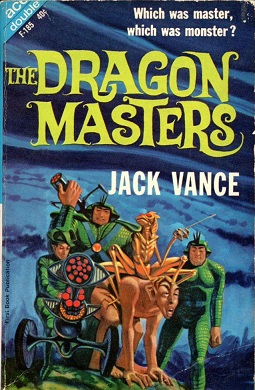
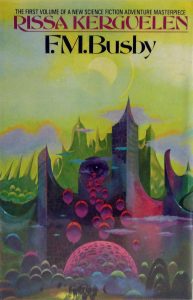
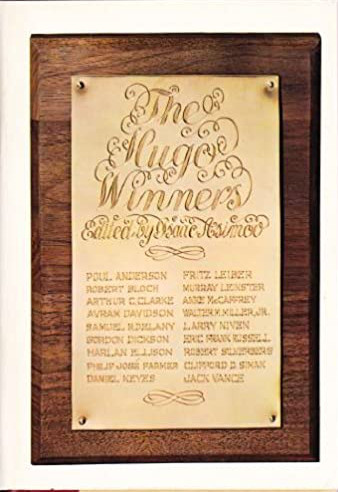
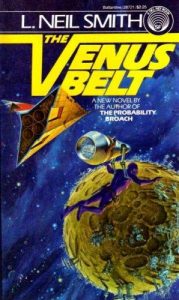
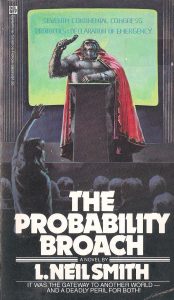
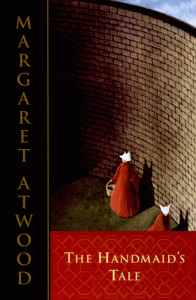
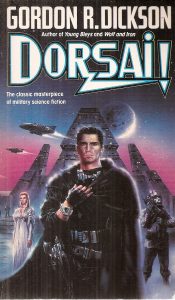


 Resentment of the immortal has been a common theme in fictional works which addressed immortality. In Heinlein’s
Resentment of the immortal has been a common theme in fictional works which addressed immortality. In Heinlein’s  But Tarzan and John Carter got to be immortal alongside their loved ones. They didn’t ever really have to reflect on what it was like to watch those they cared for age and die while they remained young and perfect. Nor did the comparatively young Lazarus Long in Methuselah’s Children. They were too busy hiding their immortality, running from those who coveted it, or just plain ignoring the short-lived.
But Tarzan and John Carter got to be immortal alongside their loved ones. They didn’t ever really have to reflect on what it was like to watch those they cared for age and die while they remained young and perfect. Nor did the comparatively young Lazarus Long in Methuselah’s Children. They were too busy hiding their immortality, running from those who coveted it, or just plain ignoring the short-lived. Isaac Asimov gave us a glimpse into the long-lifer-loves-short-lifer scenario from a dual perspective in
Isaac Asimov gave us a glimpse into the long-lifer-loves-short-lifer scenario from a dual perspective in  But an immortal character I wrote about last week, Max August, does have expectations that his dead loved one will return, and they seem sane because his creator deals with immortality on two levels. Max, an alchemist, is physically immortal as a result of his craft. He lost his wife, Valerie, years ago on New Year’s Eve; but Valerie is likewise immortal. She’s just not physically immortal, she’s spiritually immortal. For many All Hallows Eves, Valerie contacts Max to let him know she’s still there. As of Max’s latest adventure, The Plain Man, Max is expecting Val’s return in the flesh, and Val is… well, we’re not sure what Val is. We think she’s trying to come back, but the forces of evil are doing their damndest to stop her.
But an immortal character I wrote about last week, Max August, does have expectations that his dead loved one will return, and they seem sane because his creator deals with immortality on two levels. Max, an alchemist, is physically immortal as a result of his craft. He lost his wife, Valerie, years ago on New Year’s Eve; but Valerie is likewise immortal. She’s just not physically immortal, she’s spiritually immortal. For many All Hallows Eves, Valerie contacts Max to let him know she’s still there. As of Max’s latest adventure, The Plain Man, Max is expecting Val’s return in the flesh, and Val is… well, we’re not sure what Val is. We think she’s trying to come back, but the forces of evil are doing their damndest to stop her. I think, though, that our immortal companions, the fictional ones, the myths, serve a purpose even in this capacity. They can, if we let them, remind us that youth doesn’t have to go away, that the best in us doesn’t have to age. Indeed, it can go on forever. So even though we look at them differently from year to year, I think spending a little time with ageless childhood friends can be healthy. It allows us to, as Ellen Degeneres said in a stand up routine a few years ago, “play with our inner child.” She pointed out that, if we didn’t, our inner child could be just as spiteful and vindictive as any other child who’s being ignored.
I think, though, that our immortal companions, the fictional ones, the myths, serve a purpose even in this capacity. They can, if we let them, remind us that youth doesn’t have to go away, that the best in us doesn’t have to age. Indeed, it can go on forever. So even though we look at them differently from year to year, I think spending a little time with ageless childhood friends can be healthy. It allows us to, as Ellen Degeneres said in a stand up routine a few years ago, “play with our inner child.” She pointed out that, if we didn’t, our inner child could be just as spiteful and vindictive as any other child who’s being ignored.